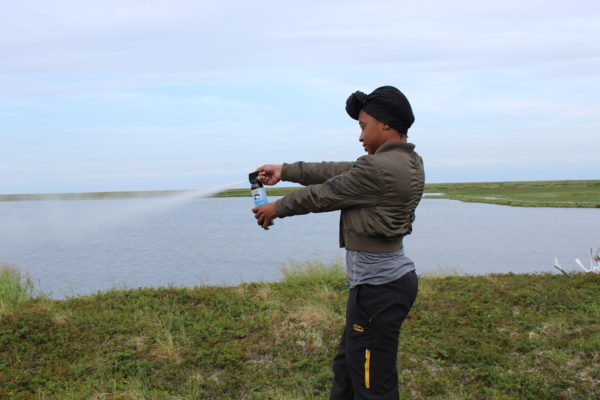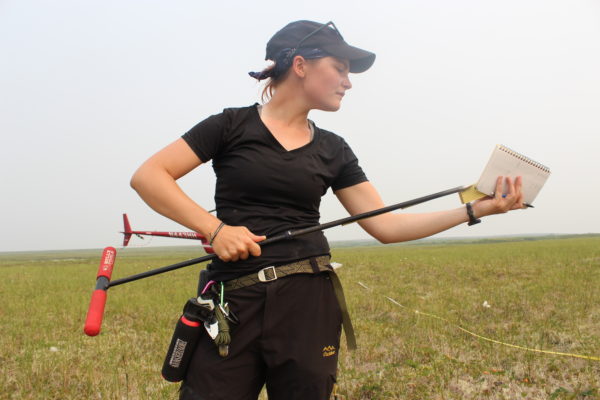In the aftermath of our symposium presentations at the Northeast Science Station, I thought about what further analyses to run on the data I collected in the tundra. I have found a few exciting initial patterns, but I have to work much harder to understand my more complicated measurements. Amid stowing hundreds of plastic bottles in duffle bags, hauling sample coolers and dirty clothes up from the barge, and saying farewell to the beautiful purple and yellow flowers surrounding the Station, I had no time to revisit my data. But now that I am seven hours in to the third leg of the flight back, I have had plenty of time to reorganize my spreadsheets and to think back over the whole project.
I have a nagging question. How does knowing what I now know help? I spent my time in the tundra racing across the Kolyma by skiff and trudging through mosquito-radiating depressions to gather water. By analyzing the samples, I was able to tease out where carbon compounds break down, and how light and biological processes interact in that breakdown. I learned that the small streams emerging from the edges of the tundra significantly breakdown the carbon which enters them, rather than passively carrying it to bigger bodies of water, and that light can be more important than biological processing for driving carbon loss. I find this immensely exciting. I may even be able to estimate how much carbon is broken down in each watershed by using maps based on satellite imagery to scale up the measurements I took. But even after all my data and ideas have turned into an eye-catching poster, how does knowing this help? Knowledge of the pathway of carbon breakdown in that part of the Siberian tundra will not impede rising temperatures or preserve the ice deep in the Arctic ground. I found answers to the questions I asked, and have been delighted and energized by doing so. But does it matter?
This is my first foray into ecology. I have trained as a chemist for the past two years, surrounded by mentors and friends whose research leads to tangible solutions–a new molecule which makes an industrial process more sustainable, or my own work on using light intensity data from pictures of cells to learn about cell populations (a system which could eventually aid with studying cell responses to dangerous viruses). My work in the Arctic lead only to information.
But without information, we would not know that anything needed solving in the first place. True, I have not produced a result which will mitigate climate change. However, I have unearthed a puzzle piece (though a small one) which makes the image of what is happening in Siberia clearer, and only with a complete image can we know what needs to be done and how giant the stakes are. If I continue with Arctic science, it will be in the roll of scout and herald, discovering and conveying the changes in the waterways so that others can understand, and can implement society-scale solutions to the problems. I am still learning what it feels like to expand knowledge, but I have realized that it is a necessary part of the quest for a solution. And if the joy I feel while uncovering puzzle pieces means that I can learn to expand knowledge well, then it may be a good part for me to play.




Comment(1)-
John Schade says
August 2, 2014 at 4:45 pmMegan, you ask some very important questions. Why do we work so hard to do this? How do we justify to ourselves and to the world that we are investing resources in something worthwhile?
I think we all have different answers to these questions, but for all of us there is something about the joy of discovery that drives us.
Utility comes later. Of what use is the knowledge we are producing? I believe there is inherent value in understanding how our world works and we should not be afraid to let that be our motivation.
We should also, however, consider how our efforts can help us navigate an uncertain future. Better understanding of carbon cycling in Arctic tundra streams will help us more effectively model the impacts of climate change, and, most importantly, forecast how Arctic environments will change and feedback on climate change.
So, Megan, feel the joy of discovery, and take heart that there you are helping us understand what the future holds.